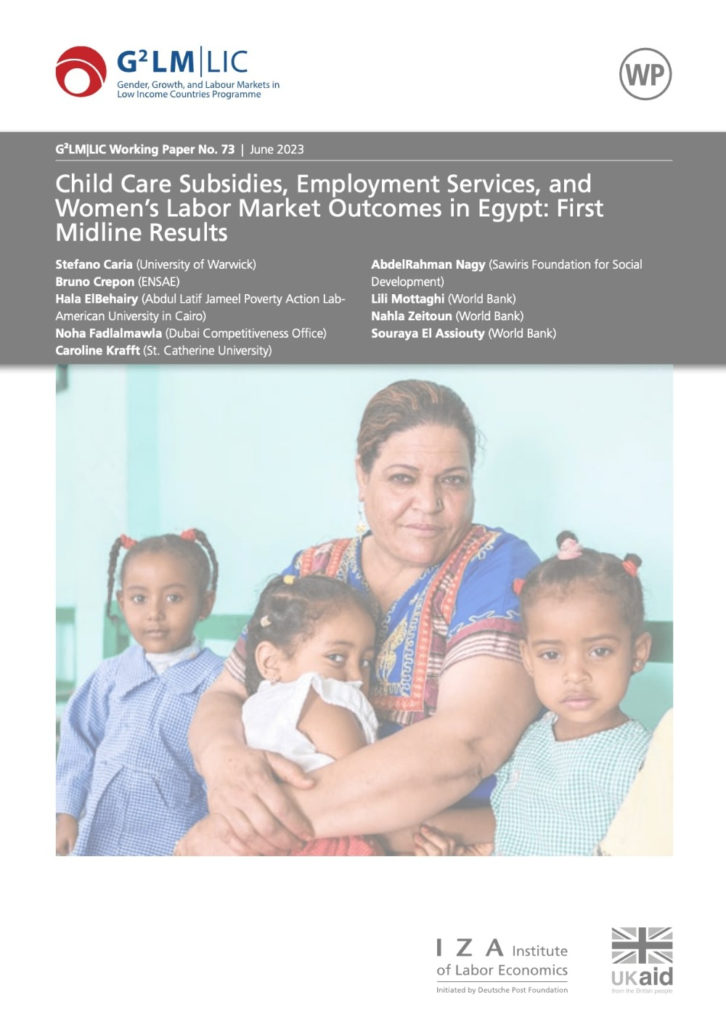
The Middle East and North Africa (MENA) region has the lowest rates of female labour force participation globally. Despite improvements in women’s education, their participation in the workforce has stagnated or even declined in some countries. This is attributed to three main factors: the high opportunity cost of women’s time, limited job opportunities, and restrictive gender norms. Women often leave work upon marriage due to the significant amount of care work they undertake. The labour market is segmented by gender, and overall job demand is weak, which further limits employment opportunities for women. Gender norms prioritize men’s employment and discourage women from working outside the home. To address these challenges, this study conducted a randomized controlled trial in Egypt, focusing on two interventions: child care subsidies and employment services for mothers with young children. Access to early childhood care and education (ECCE) has been shown to be crucial for women’s labour force participation. Child care subsidies in low- and middle-income countries have increased women’s employment. Additionally, job matching interventions have had mixed results but have shown potential in improving women’s employment rates. This study contributes to the existing literature by examining the impact of these interventions in a context with lower female labour force participation and testing the complementarity of employment services and child care subsidies. The paper discusses the outcomes of the interventions, including take-up rates, job search behaviors, and the influence of gender norms and childcare concerns on women’s participation in the labour market. The study found modest take-up of the interventions, and while they did not significantly affect job search behavior or wages, they did reveal important barriers related to gender norms, childcare norms, and concerns about nursery safety and quality. Read the detailed working paper here.